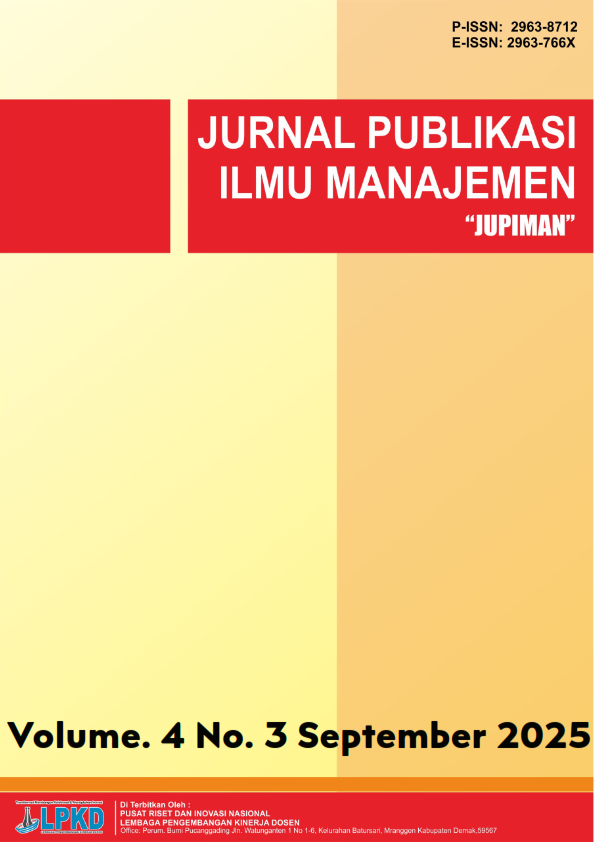Pengaruh Pendidikan Kewirausahaan Dalam Menumbuhkan Minat Berwirausaha Mahasiswa
DOI:
https://doi.org/10.55606/jupiman.v3i1.3300Keywords:
Business Ownership Education, Entrepreneurial Interest, EntrepreneurshipAbstract
To achieve an optimal entrepreneurship ratio of 4% of the total population, Indonesia needs 5.8 million new business owners. Many educational institutions are now integrating entrepreneurship education into their curriculum because of the need to develop future generations of entrepreneurs. These include the extent to which entrepreneurship influences student education, the correctness and efficacy of entrepreneurship teaching techniques, and the controversies surrounding the feasibility of teaching entrepreneurship. The aim of this research is to test whether entrepreneurship education influences students' ability to produce plans to start a business? Students in the entrepreneurship class were used as research subjects. In this research, one of the data analysis methods used in this research is the normality test using the paired t test to measure differences. Research findings show that students' aspirations for entrepreneurship do not differ significantly from each other. This requires more thorough research into how well in-house entrepreneurship education fosters students' entrepreneurial ambitions as well as evaluation of entrepreneurship class content, instructors, and delivery strategies.
Downloads
References
Ambad, S., & Damit, D. (2016). Determinants of Entrepreneurial Intention among Undergraduate Students in Malaysia. Penang: Procedia Economics and Finance.Fifth International Conference On Marketing And Retailing, (p. 108- 114)
Budi & Koli, N. (2016). Analisa Perbedaan Karakter Wirausahawan dan NonWirausahawan, Universitas Bunda Mulia, Laporan Penelitian Tidak Terpublikasi
Dinis, A., do Paco, A., Ferreira, J. Raposo, M., Rodrigues, R.G.,Psychological characteristics and entrepreneurial intentions among secondary students, Jurnal Education + Training, p. 763-780
Ferreira, J., Raposo, M., Rodrigues, R., Dinis, A., & Paco, A. (2012). A model of entrepreneurial intention. Journal of Small Business and Enterprise Development, p. 424-440.
Fitriati, R., & Hermiati, T. (2010). Entrepreneurial Skills and Characteristics Analysis on the Graduates of the Department of Administrative Sciences, FISIP Universitas Indonesia. Journal of Administrative ScienceS & Organization, p. 262-275.
Krueger, N., Reily, M., & Carsrud, A. (2000). Competing Models Of Entrepreneurial Intentions. Journal of Business Venturing, p. 411-432.
Prodan, I., & Drnovsek, M. (2010). Conceptualizing academicentrepreneurial intentions: An empirical test. Technovation, p. 332-347.
Uslay, C., Teach, R., & Schwartz, R. (2002). Promoting Entrepreneurship for Economic Development: A CrossCultural Analysis of Student Attitudes. Journal of Research in Marketing and Entrepreneurship, p. 101-118.
Zhang, H., & Zhang, Y. (2013). Psychological Characteristics of Entrepreneurship of College Students in China. Psychology, p. 159-164.
Downloads
Published
How to Cite
Issue
Section
License
Copyright (c) 2023 Jurnal Publikasi Ilmu Manajemen

This work is licensed under a Creative Commons Attribution-ShareAlike 4.0 International License.








